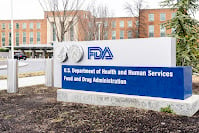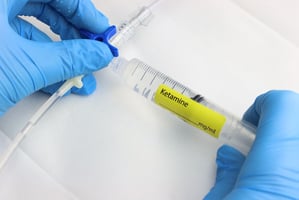FDA Expert Panel Votes Against Approval of Psychedelic Drug MDMA for PTSD

Federal approval of psychedelic drugs for the treatment of intractable mental illnesses hit a snag yesterday as a Food and Drug Administration panel voted overwhelmingly against the approval of midomafetamine (MDMA) to assist with the treatment of posttraumatic stress disorder (PTSD).
By a vote of 10-1, FDA’s Psychopharmacologic Drugs Advisory Committee, composed of independent experts including psychiatrists, found that the benefits of MDMA did not outweigh its risks. The panel also voted 9-2 that the available data did not show the effectiveness of MDMA for the treatment of PTSD.
While the committee’s vote is not binding, the agency often follows its recommendations. The FDA expects to render a final decision on the application by Lykos Therapeutics for its MDMA-assisted psychotherapy (MDMA-AP) by August 11.
"We remain committed to working with the FDA to address outstanding questions so that we may find a path forward to ensure the responsible and careful introduction of MDMA-assisted therapy into the health care system, if approved,” said Amy Emerson, chief executive officer of sponsor Lykos Therapeutics, in a media release following the decision.
MDMA, also known as ecstasy, is a psychedelic that can elicit feelings of empathy or social connectedness in users, potentially enhancing the benefit obtained from psychotherapy by reducing sensations of fear or threat.
Prior to the meeting, an FDA analysis pointed out that while the sponsor’s two clinical trials showed significant improvement in PTSD symptoms among participants who took MDMA, they also raised major concerns. The issues included lack of blinding that could inject biases; significant increases in blood pressure and pulse; limited clinical laboratory data and incomplete QT-interval assessments; and lack of long-term outcome data. During yesterday’s meeting, the advisory committee also raised concerns about sexual abuse that occurred during the clinical trial.
APA submitted comments to the FDA advisory committee last month expressing support for research into use of psychedelic agents in general, but stressed such endeavors must be conducted with the same scientific integrity and regulatory standards afforded to other emerging therapies. APA also urged a cautious approach: “[A]ny FDA approval of MDMA must be accompanied by rigorous regulations, strict prescribing and dispensing controls, comprehensive patient education, and ongoing monitoring and surveillance systems,” according to the letter.
The Institute for Clinical and Economic Review (ICER) also issued a research report last month rating the evidence presented by Lykos as “insufficient” and expressing substantial concerns about the clinical trial results’ validity. In the report, ICER pointed out that the trials were essentially unblinded as nearly all patients who received MDMA correctly identified that they were in the MDMA group.
“This would always raise concerns about bias, but these concerns are particularly heightened as we heard from multiple experts about the very strong prior beliefs of those involved in the trials (as investigators, therapists, and patients) about the benefits of MDMA-AP,” the ICER report stated. Furthermore, some therapists involved in the trial allegedly encouraged participants to give the drug favorable reviews and discouraged participants from reporting substantial harms.
For related information, see APA’s “Position Statement on the Use of Psychedelic and Empathogenic Agents for Mental Health Conditions.”
(Image: Getty Images/iStock/JHVEPhoto)
Don't miss out! To learn about newly posted articles in Psychiatric News, please sign up here.





